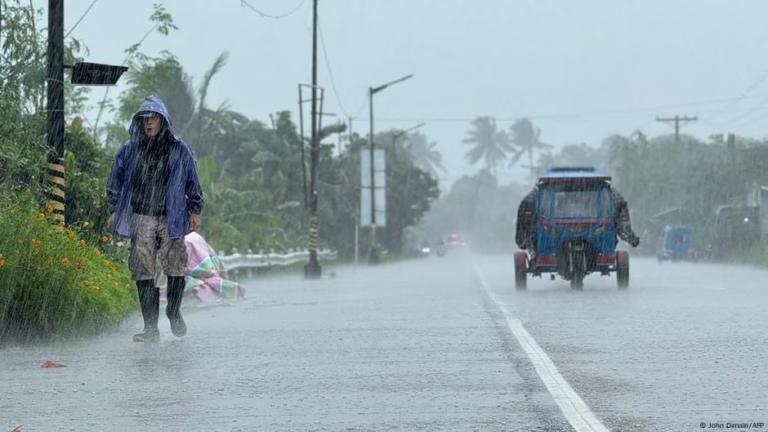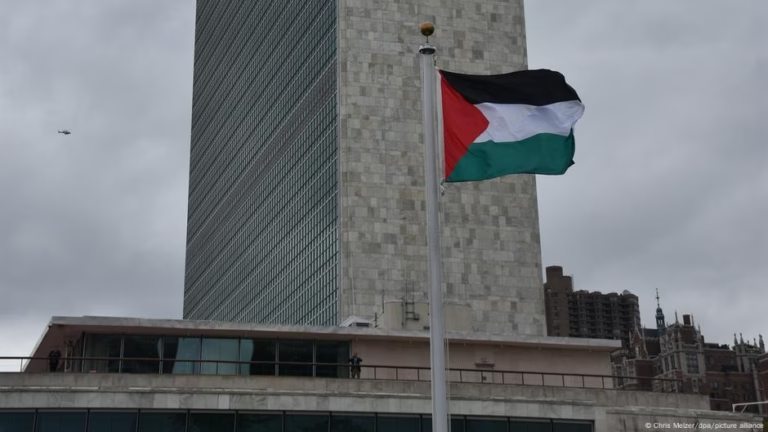She was sentenced to death twice in 2024 and early 2025, with the Supreme Court upholding the ruling each time in August.
Her advocacy for workers’ rights led to her arrest. She was a member of a committee for forming labor organizations in the northern Iranian coastal city of Rasht on the Caspian Sea, where she lived with her family, including her 13-year-old son.
Image: Private
Under Iranian criminal law, three offenses are punishable by death: war against God (moharebeh), corruption on earth, and rebellion (baghi), according to lawyer Marzieh Mohebi. “The relevant articles of the law are so vaguely worded that judges can apply them to almost any form of protest or political activity,” Mohebi told DW. She has been living in exile in France for two years and in Iran, she built a network of female lawyers who represented women imprisoned without charges or in difficult circumstances.
In September 2022, nationwide protests broke out following the death of 22-year-old Jina Mahsa Amini in police custody. Amini was allegedly not wearing the mandatory head covering for women correctly. A movement developed under the slogan “Woman, Life, Freedom,” becoming a symbol of resistance to the compulsory headscarf and systematic discriminations against women.
Many female lawyers were arrested during the systematic suppression of the demonstrations. A court in the northern Iranian city of Mashhad initiated proceedings against Mohebi before she could provide legal support for demonstrators who had been arrested.
Vague laws, harsh penalties
“It is not difficult to quickly turn ordinary people into ‘criminals’,” Mohebi said. “This practice is not a constitutional procedure based on the laws created by the Islamic Republic, but rather an expression of the regime’s desire to suppress any form of civil activity under the pretext of security. It shows that even in times of crisis, the regime continues to regard the suppression of domestic opposition as its most important task.
Sharifeh Mohammadi is a labor rights activist, a feminist, and an opponent of the death penalty. After her arrest in 2023, her family did not know where she was being held or why for months. Mohammadi later reported that she had spent more than 200 days in solitary confinement where she was tortured and abused.
In June 2024, the court in Rasht sentenced Mohammadi to death for “baghi.” A higher court overturned the verdict in October 2024 and ordered a retrial. But after a new trial, the death sentence was upheld in February 2025.
“Under the laws of the Islamic Republic, a rebel is a person who has been directly involved in an armed uprising against the government,” said social and gender researcher Fatemeh Karimi. “Sharifeh, on the other hand, had no connection to armed actions. There is no evidence of this. What Sharifeh did was union activity in the context of labor protests, which in no way corresponds to the criminal definition of rebellion.
Criticism in Iran and beyond
Human rights organizations have reported serious procedural flaws in her prosecution, calling it a politically motivated trial.
The death sentences, for example, were handed down by two different judges who are first-degree relatives. Ahmad Darvish-Goftar, chairman of Criminal Court 1, is the son of presiding judge Mohammad Ali Darvish-Goftar of Criminal Court 2.
Several European trade unions, including those in Germany, France, and Sweden, as well as the International Trade Union Confederation, have called for the verdict to be overturned and for Mohammadi’s immediate release.
Criticism of her death sentence is growing within Iran as well. The Iranian Teachers’ Trade Association condemned the verdict as “inhumane and unjust.” The case has drawn fierce international criticism.
Amnesty International and numerous Iranian and international human rights organizations have called for the immediate withdrawal of the death sentence.
This article was originally written in German.






